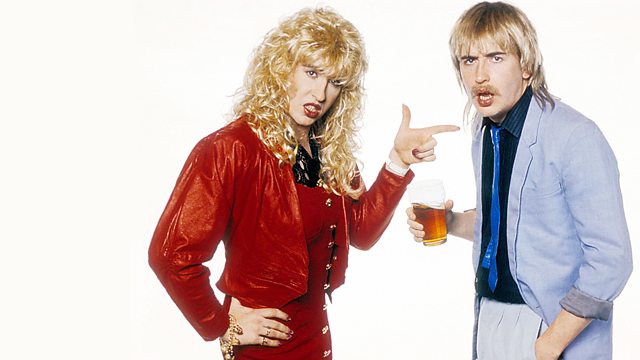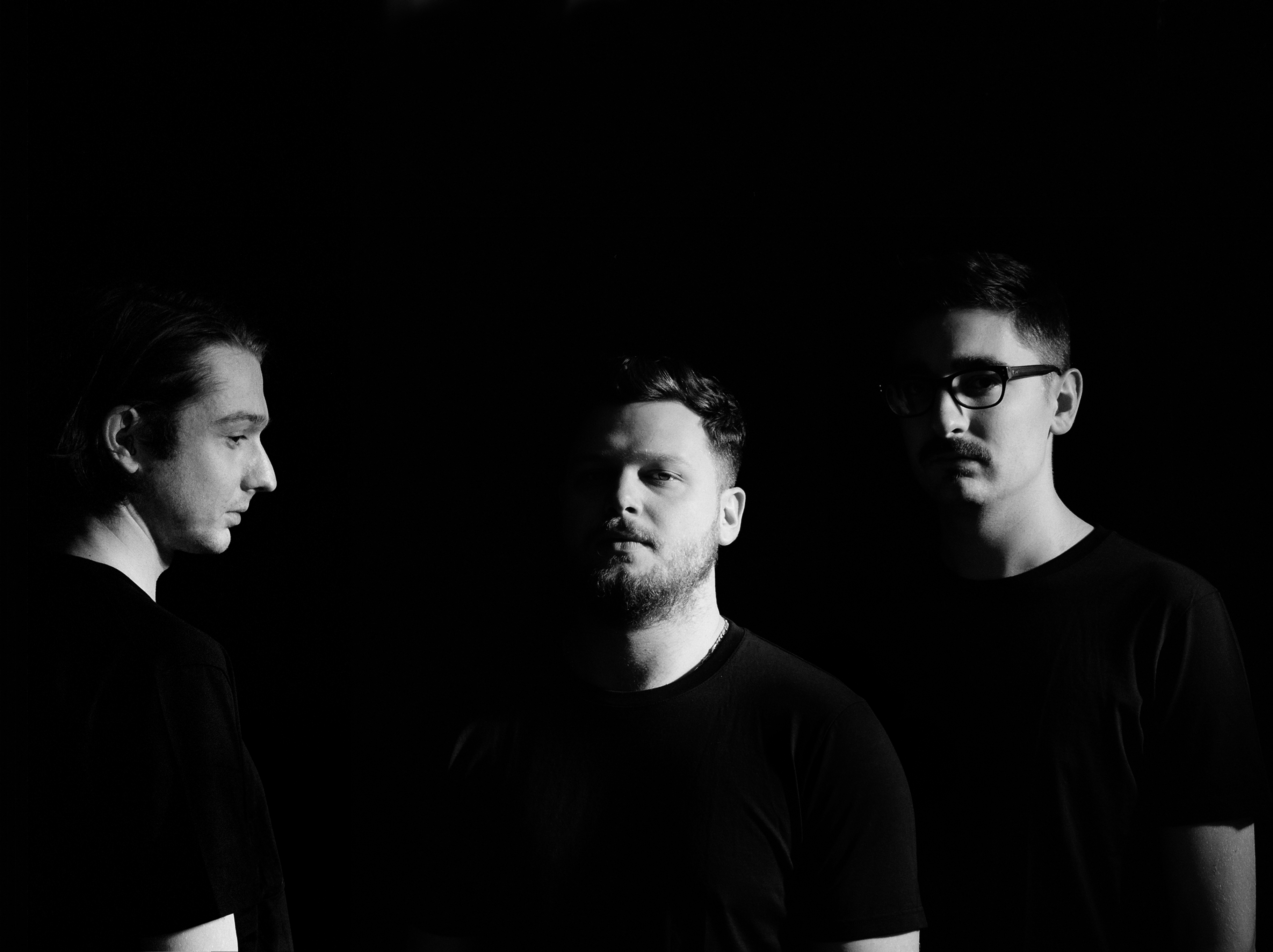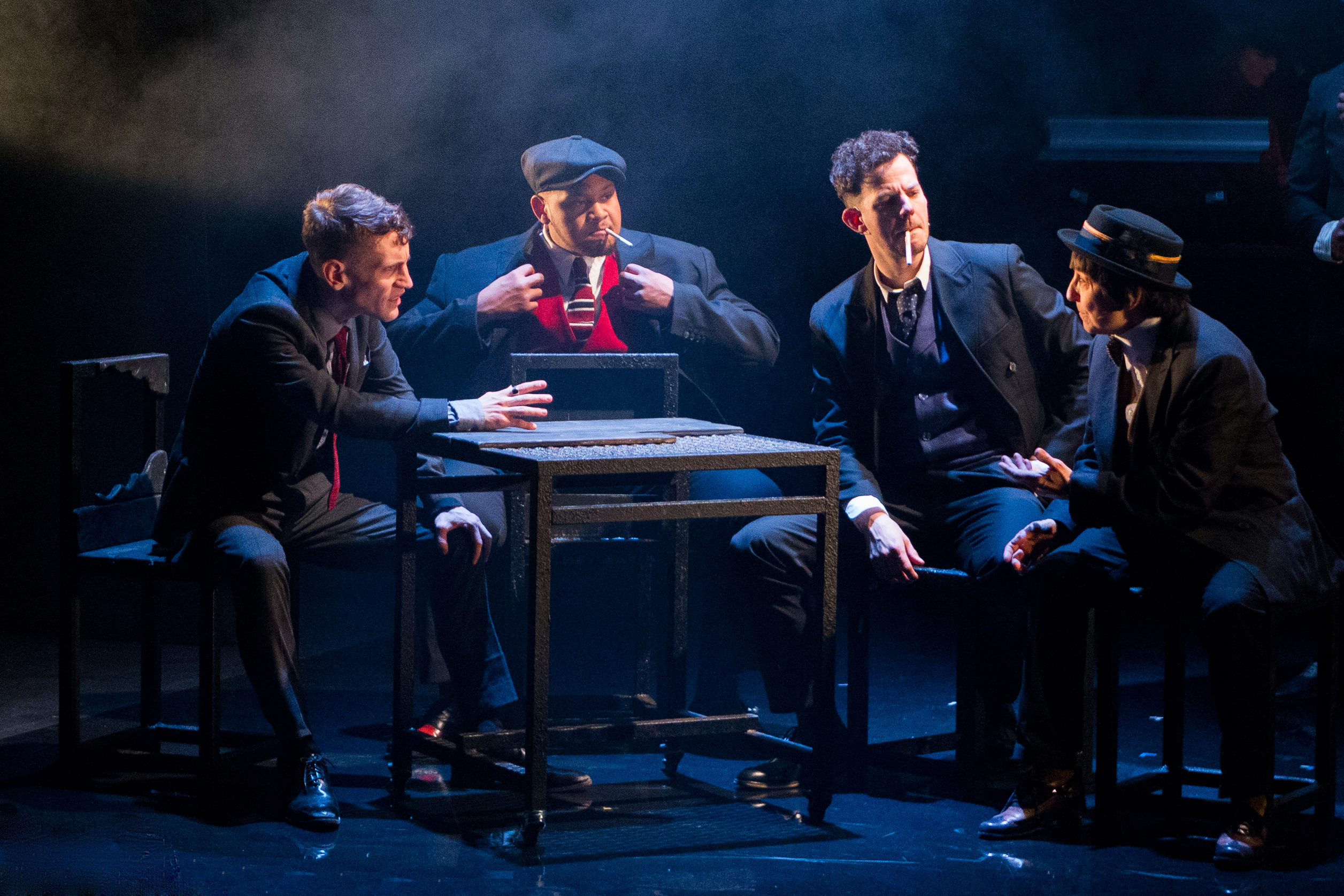The last time I was in Lewes, somebody attempted to blind me. Looking for friends at the Bonfire festival, and exhausted by miles of walking, I’d crouched at the kerb when a member of a troop circling the town tossed a firecracker at my feet. The scene I’m reminded of when I retell this story is the climax of Leon: The Professional. Like Gary Oldman discovering the pin-less grenades under his nose, I drew the phone away from my face, furrowed my brow, and was soon blown to pieces. Or my head was.
This morning, I don’t seem much better. Though I’ve recovered from the detonation and that night’s subsequent events (miles and miles of walking, trippy burning pyres, a mellow fear of death), the night prior to today has left me thick. My thoughts are foggy and my lips are dry. Half-grabbed memories from a mere five hours prior leave me humbled, dragging my heels. I’m in need of some therapy, some advice.
Which is perfect, because in a fit of anxiety relating to the future, and what I should do, I emailed Steve Coogan. In 2017, as a first-year student plagued by a striking faculty, I absconded from Sussex for a two-week stint at BabyCow, the production company established by Steve and Henry Normal in 1999. There I was privy to scripts that years prior I had fawned over at their peak on television. I did the usual stuff, fetching coffees and teas, navigating London, occasionally admitting comedy giants to the building. It cemented some kind of hope to work in the media, and the few snatched conversations with its founder were empowering. I kept his email for safekeeping. For a day like today.
We arrange to meet at a coffee shop in Lewes. Sat there, I feel as if I’m about to go on a date. Why not, when it resembles every date I’ve been on? My armpits are sweaty, my body jittery, I rehearse my dialogue like a thesp, over and over in my head. Being in Lewes renders me somewhat anonymous. I know that, here, I won’t see anybody I recognise, won’t be looked at. The place seems like Trumpton, so clockwork and quaint. It lulls me into something like security. Which is broken when Steve enters.
At the door to the building stand a gaggle of dog-walkers – all about Steve’s age. Staring at them prior to his entry, I have a fear that I may not recognise him, that he may blend in. But as he breaks through the curtain of bodies, and most heads turn his way, it becomes evident my assumptions are off. Despite a knitted vest and corduroy trousers – uniform for the locals – there is something in his manner that marks him undeniably out. It may be a face that has appeared on our screens, in various guises, for twenty-five years; but I think it’s his eyes, his hands. They constantly swing around and devote their attention to minutae. Within our first five minutes together we have teetered on the fringe of fervent discussions before having to be steered into ordering food. It’s a trend that most of the conversation will take.
He orders a chilli bowl and I, avocado on toast. We’re delivered cold coffees, change them, all while flitting between chats about the Lib Dems, Ultravox, and Zionism. It feels briefly as though my head may explode. This is before I resolve to chill, eat my toast, and listen. Hearing Steve talk is like happening across a preacher in Hyde Park Corner; I could be anyone, but his intentions never waver. His experience is as applicable to students as to anyone else, as though there’s little distinction between the two. After a while, we realise that we have skipped the pleasantries. We begin asking each other where we live, how are our families, what we’ve been watching.
But the frivolities don’t last for long. We quickly discover an affinity between us. Our love of TV is pretty all-pervading. In the half-second that I try recall a documentary I had enjoyed, Steve shoots the answer.
‘Synth Britannia’ he says, before stating the bands that dominated the era, remembering his own time playing synth at school, and an explanation of how a synth player would have to illustrate their presets by creating a diagram of the board. The fact that we’re so equally enthused, and can recall so easily the details of a documentary through its high quality, work to affirm a point he makes later in the discussion, championing the three-channel television of the seventies.
‘[TV] At its best…’ he says. ‘It’s unifying. There is a glue in that schedule… a good comedy, that was accessible, everyone would laugh at. A muslim, a student, a bank manager, and a conservative politician… everybody would laugh’.
The only show he sees as equivalent is ‘Strictly Come Dancing’, which deflates me. I ask him what he thinks of ‘Love Island’, the only show I can pick as being similarly unifying. This seems to irk him.
‘I can’t [watch it] I can’t… Not even in a postmodern way. I can’t expend… I can’t do it.’
The show’s existence seems to tire him. I try to offer its positive points, and can’t muster them. He tries to find an explanation.
‘It’s great that people talk about it…’ He concedes. ‘But it’s ultimately celebrating ignorance. And laughs at it in an ironic way, which isn’t particularly helpful. Whereas a good comedy illuminates the truth… In a non-aggressive way, it allows you to talk about stuff.’
With the recent popularity of cancel-culture and no-platforming, I can imagine individuals refuting this statement. Operation Yewtree and #MeToo are both sensitive topics with a direct relevance to his industry. Can everything truly be joked about?
‘With a comedy programme… as long as you’re funny, and things are well-crafted, you can do things that you couldn’t normally in a way that’s not reductive and doesn’t take sides.’
He mentions that he would like to write a show about #MeToo. Himself and another writer are working on it currently.
‘It’s about how you can square a blanket epiphany with the realisation that… humanity is a bit misshapen, it’s not symmetrical, it never lines up with what you would wish. We’re not machines, we’re irregular, and some are prone to do things in an animal like way. It’s something that we have to recognise and deal with.’
We tread lightly throughout this segment. He admits that the movement is something that, talking about, must be treated with a degree of tact. The BBC’s failings regarding sexual assault have rippled throughout the industry. Anybody working in television prior to the millennium unwittingly took part in a culture with many many skeletons in its cupboard. Where do we go now the dirty laundry has been aired?
‘It’s like a game of snakes and ladders. Suddenly, we have a ladder in front of us. Of course, why shouldn’t we seize that? Within it there is nuance and complication that don’t negate its importance, but this [his] programme needs to be made to talk about that.’
Steve is a character who seems very keen to change, and enact change, wherever the opportunity arises. His action to bring justice to phone hacking victims is something that rouse a particular passion for him. One project that has not yet reached its realisation, but which he endeavours to see through, is the establishment of an institution that can work in opposition to IPSO or the PCC – both of which, he states, are not independent of large corporations. ‘Hacked-Off’, the charity he has been working with since his own phone was hacked by ‘The News of the World’, is campaigning for a free and accountable press.
‘A doctor’s loyalty should be to patients, not other doctors.’ He states. ‘But the loyalty of journalists is to other journalists, not the public.’
The freedom of speech argument, that stories should be published if they are in the public interest, is not something that’s lost on him. He states, however, that an ombudsman needs to be established to find a verdict in regards to these issues, rather than being agreed by the press, who he believes practice ‘honour amongst thieves’ and have only circulation in their sights.
In our time together, we walk. The anonymity I’d enjoyed on my arrival in Lewes has somewhat burst. The town’s happy market vibe pervades, but with something Wickerman-esque. As we pass people, I feel a rush of air from turning heads. It must be odd, being him, though I can’t work out whether he’s particularly conscious of his stature.
There is also an element – the sleepiness of the town, the wonderful food, the stream of dialogue – that likens our hangout to ‘The Trip’, though we don’t break into impressions. At times he has fallen into Paul Calf, into the Pythons, and Peter Sissons, but he calls impersonation ‘a young man’s game’. He will not be returning to Spitting Image.
So after covering the whole of television history, we reach student-hood. Ordering two teas and a chocolate courgette cake, he retells what sounds like a chain reaction of success.
After attending a Catholic Grammar School, Steve applied for Politics at university and was rejected. From there, he attended Manchester Polytechnic, where he calls himself lazy.
‘I watched too much TV, and didn’t read enough books.’
I ask him whether his success is by virtue of a natural talent, then.
He admits that, partially, this is the case. But it was his use of people and extra-curricular activities that developed his talents. Moonlighting, doing voiceovers on radio adverts, he marks as the key experience that moved him along.
‘The first ten years of my career were me educating myself…’ ‘He says. ‘The first five years… of meeting and working with other people, that’s where I learnt my craft.’
It sounds as if it were an intense time, but he appears to remember it fondly. There’s something about him that reminds me of Bowie. He envisioned a future to be a part of.
‘Every generation a new group emerges.’ He says, then reels off a list; The Goons, Beyond the Fringe, Monty Python, Not the 9 o’clock News, The Young Ones. It seems a list he revers. He calls his era “post-Young Ones”.
‘I remember thinking ‘a new group of people is bound to emerge, why can’t I be part of that group?’’
It seems easier said than done. On the cusp of asking where people may find their groups, he offers his best advice.
‘The best thing I ever did… was finding other talented people who I had an affinity with, and working together. I chose the best people to work with.’
His experience sounds fantastic. As he talks, I list those in my head who dominate British comedy now; Jimmy Carr, Rob Beckett, Jack Whitehall (try this at home, kids, google “popular comedians” and calculate the average age), they are hardly young, nor do they belong to any identifiable sect. As with everything, Steve has a view on this.
‘Comedy used to be a statement. Now it’s just a career choice for people… They might be good professionally, I understand their appeal, [but] it’s just not for me… Anything that has a point to make, that’s what I like.’
On our walk to the train station, I consider Steve’s belief in movements more widely. #MeToo, Extinction Rebellion and Remain are all movements and stances with an inherently political ideal, but I cannot find comedic troupes with a similar relevance. For British comics in particular, those who we consider popular are those we have a nostalgia for. I think of what Steve said in regards to his own career.
‘There are people around the country right now, who in ten years time will be part of whatever the new ‘thing’ is… and they don’t even know it yet. The people I was with… I found that what they were doing was something that interested me, and from an artistic point of view.’
He said he’d never been fiscal, never been a businessman, and this shows. Ten years seems like a long time. Looking back ten years, I can’t identify a comedy movement, therefore, I reason, we must be on the cusp of some revolution. We must.
As we approach the station, Steve and I have a brief conversation about the climate change issue, on which he adopts an interesting stance. He points out the duplicity of those campaigning against the meat industry, but will buy a £2 T-shirt. This is something, he contests, should not be possible. Cheap clothing is only possible through cheap labour, and while people are restricted financially they will still make choices to the detriment of the environment. How can people care for the welfare of animals but not of people? It’s a point that affects me.
I calculate the qualitative sum of my clothing – too cheap – we hug. I resolve to walk away now and buy a three piece suit, something to wear often, after which I will find a troupe of artists, and start a movement. I will also endeavour to maintain an air of transparency at The Badger, and will continue to ensure the voices of abuse victims are heard. Then I’ll buy a synth.
Steve steps into his Uber and I, onto the platform. It feels as though we’ve had a nice day.





